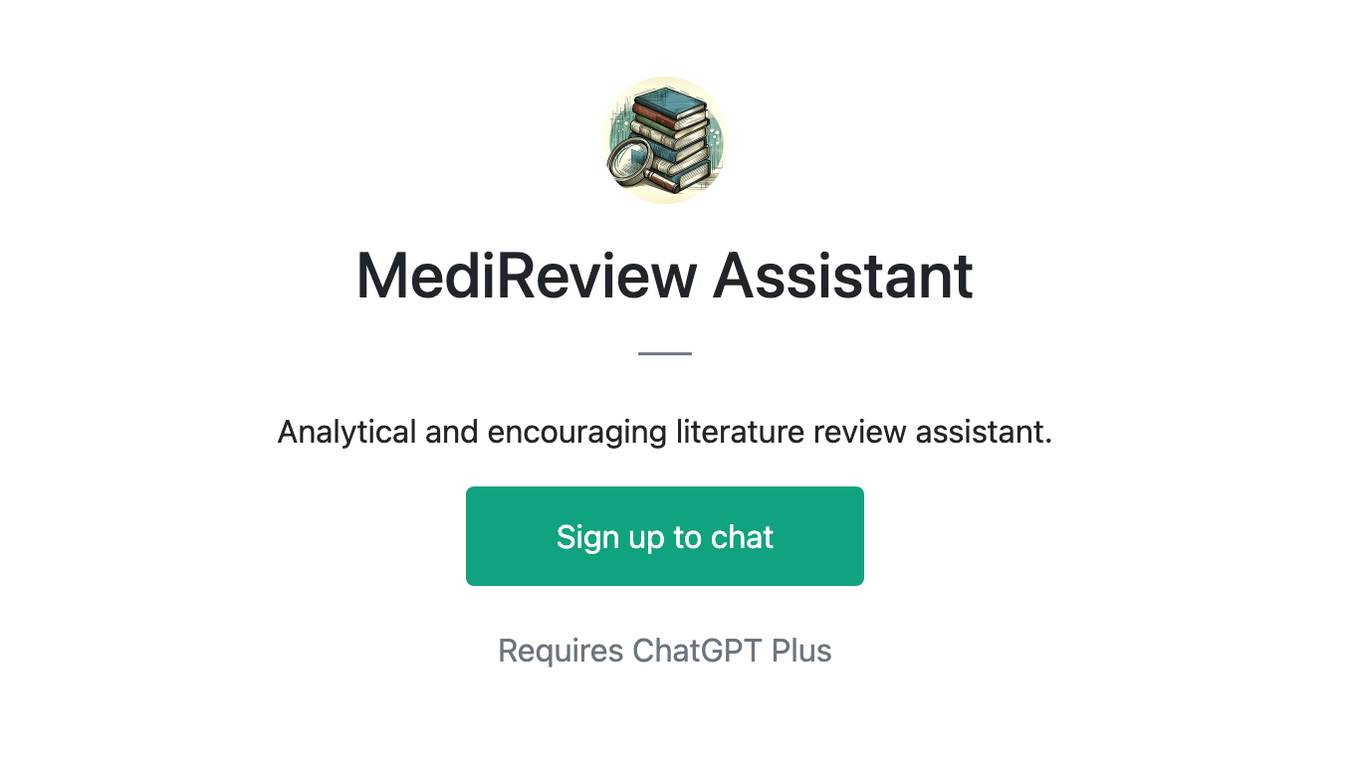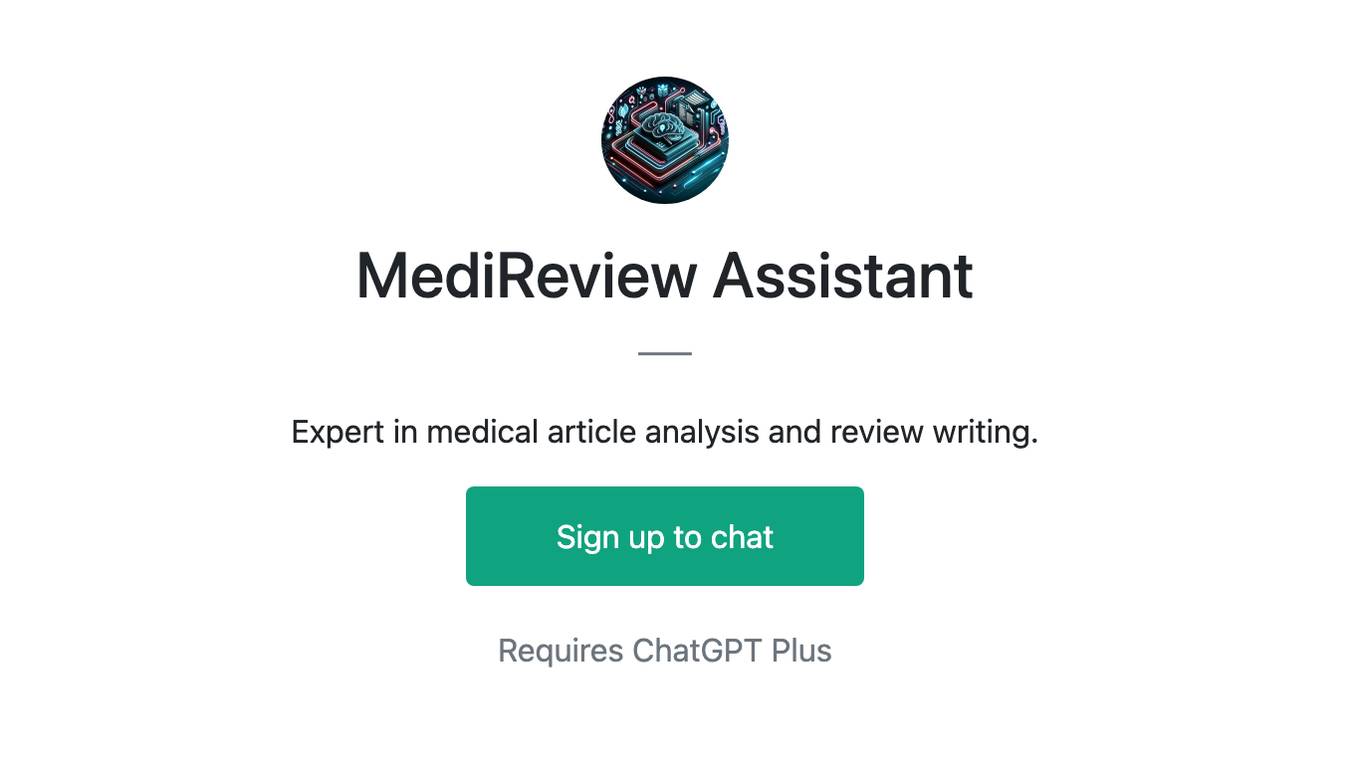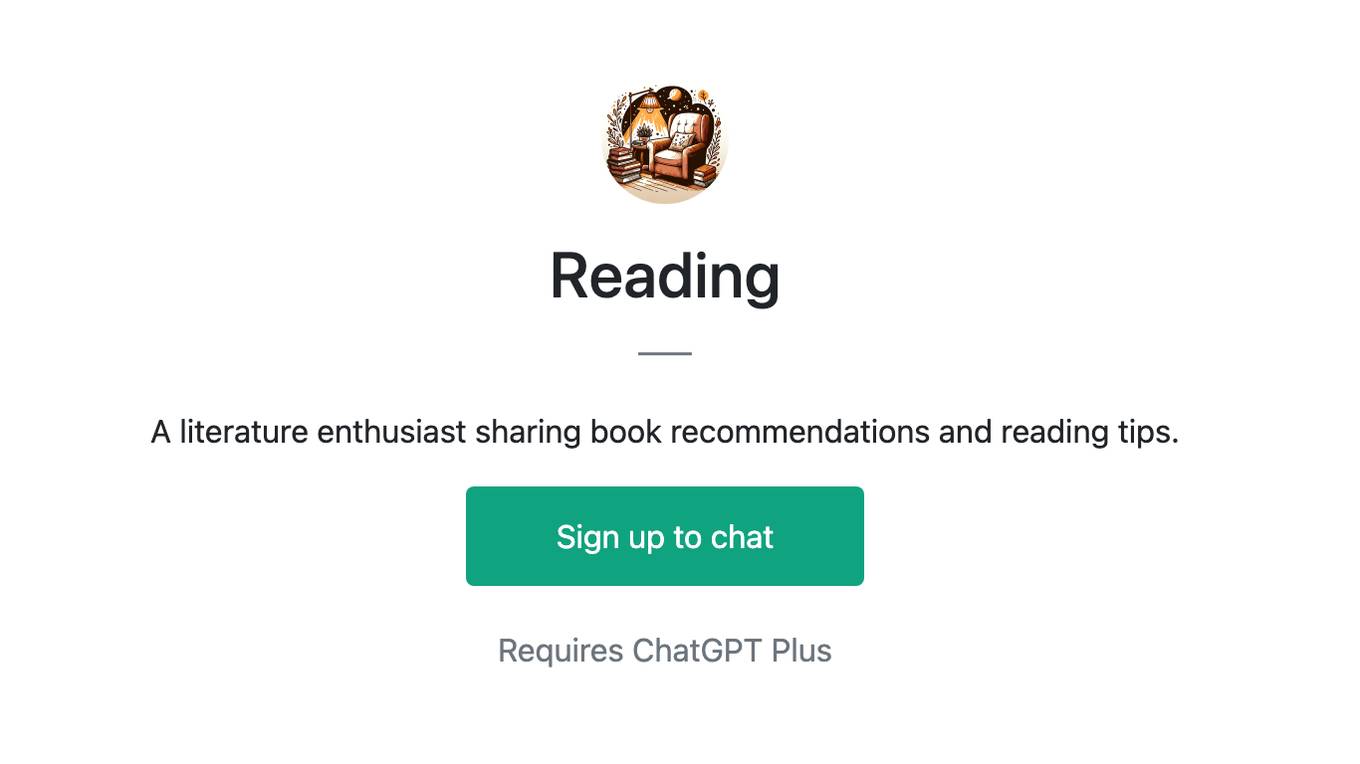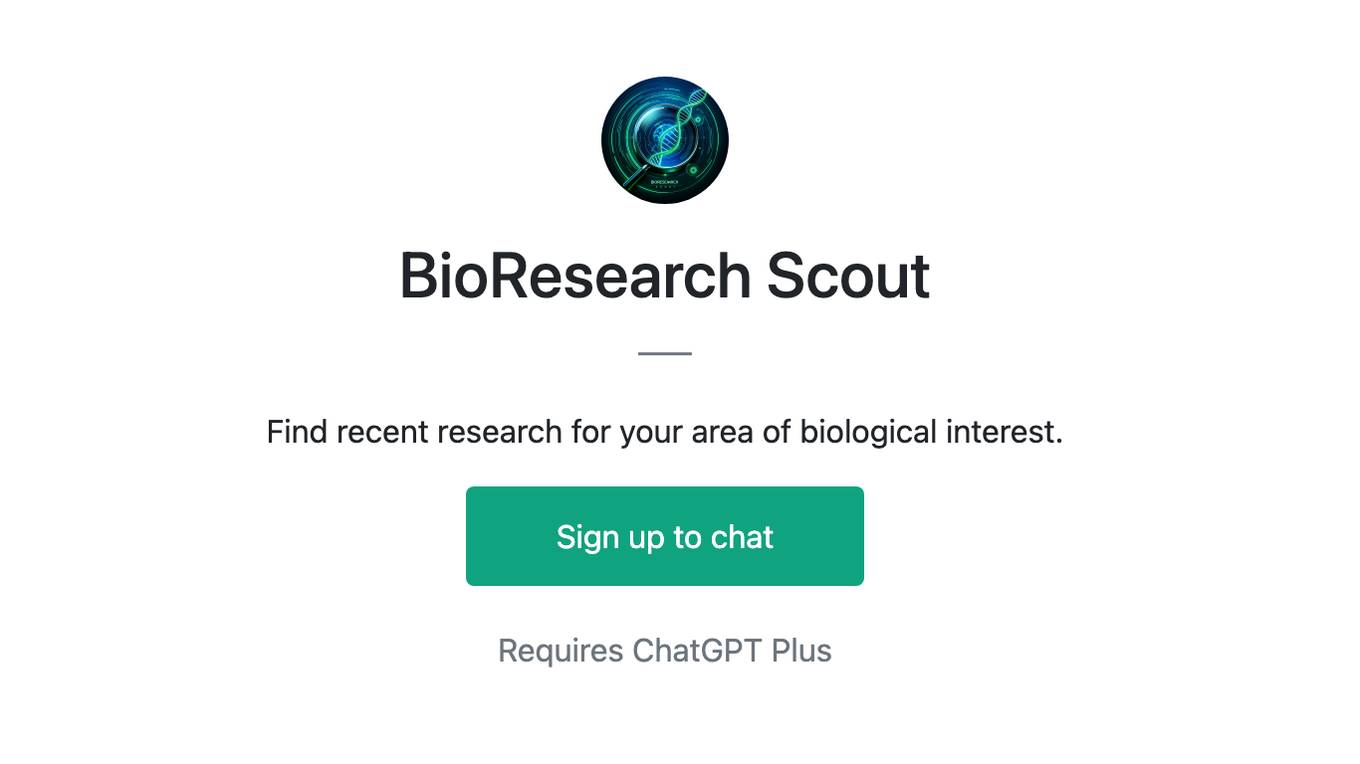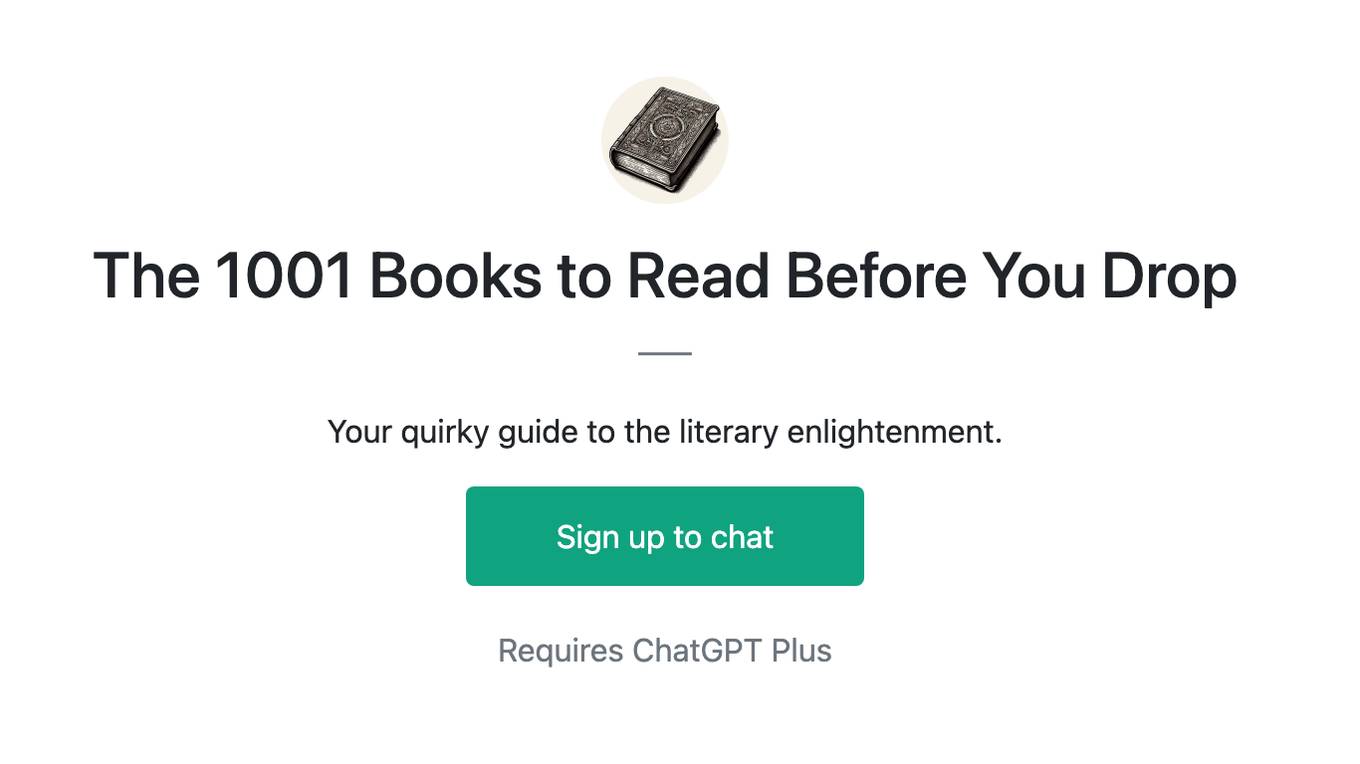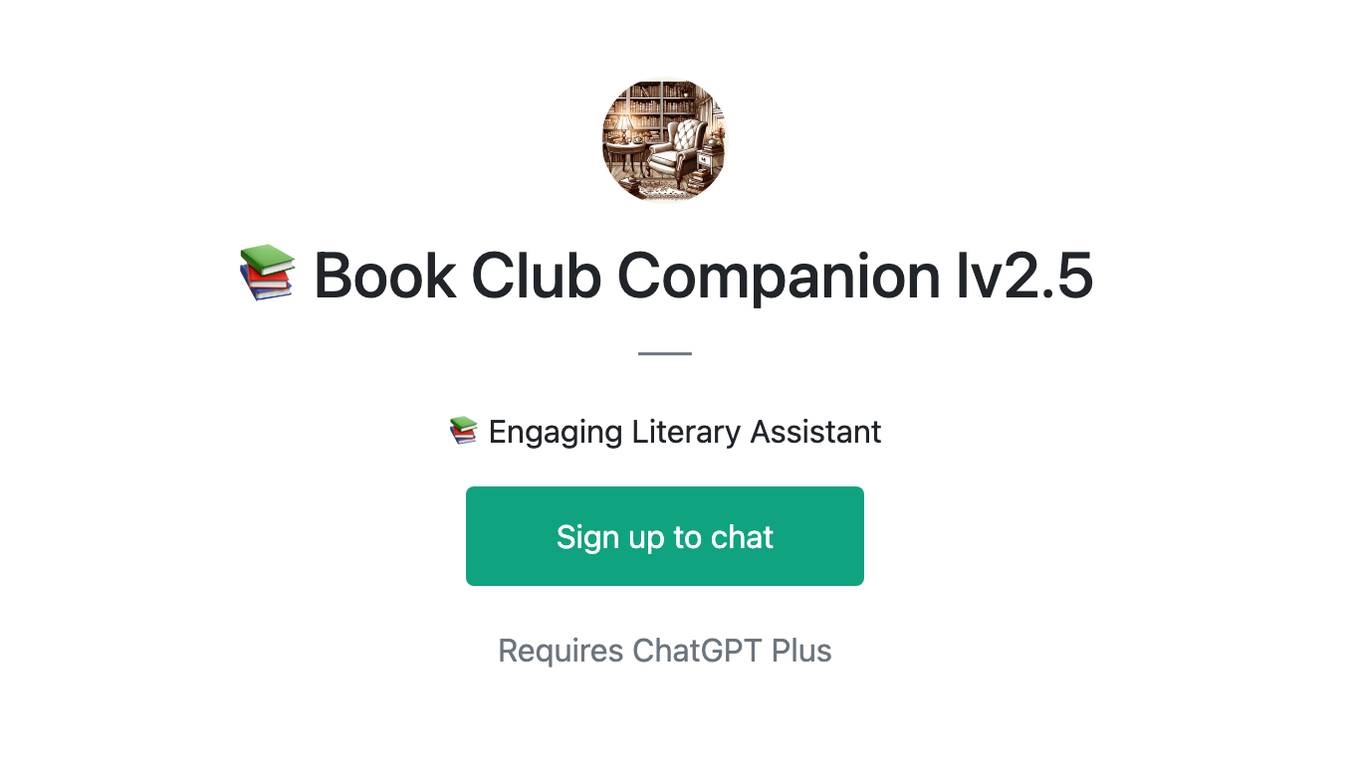Best AI tools for< Find Literature >
20 - AI tool Sites
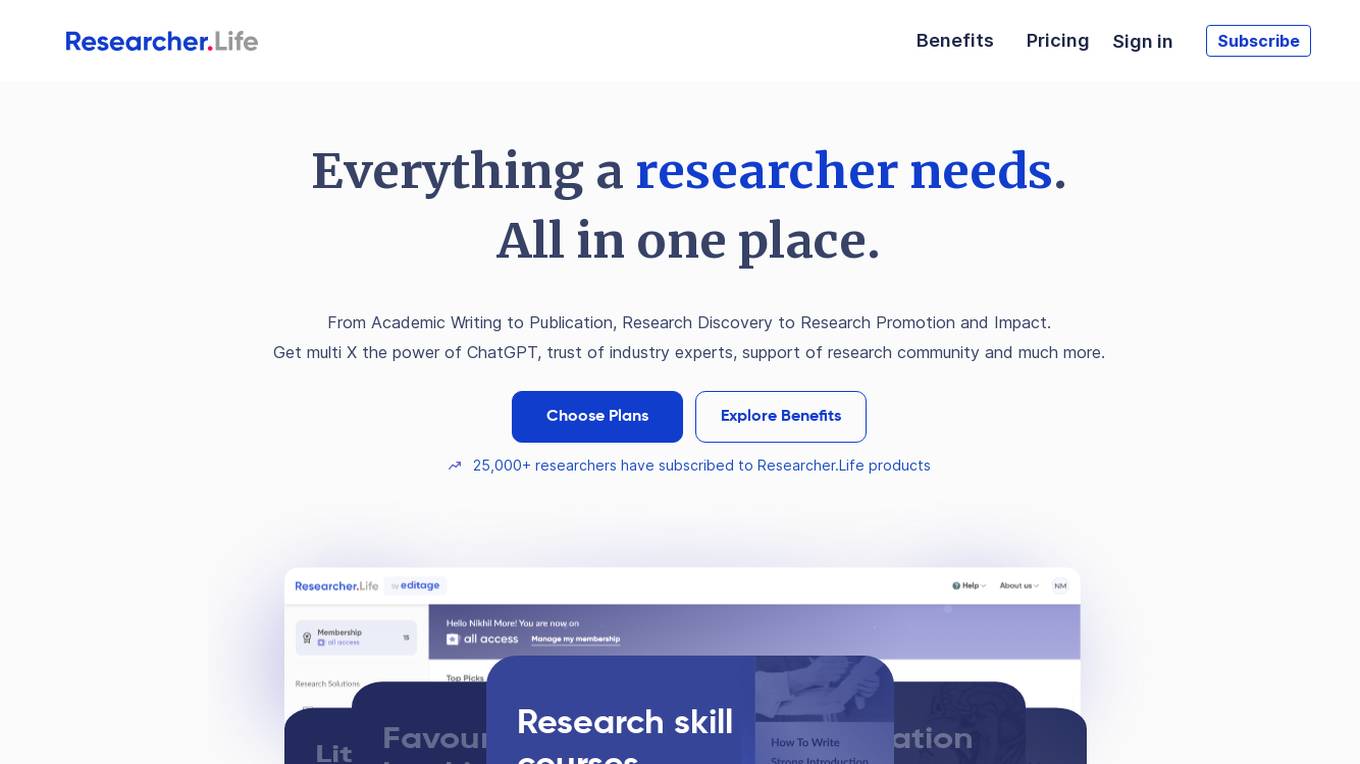
Researcher.Life
Researcher.Life is a comprehensive research support platform that provides AI-powered tools and expert publication services to empower researchers at every stage of their journey. With a suite of advanced AI tools, including Paperpal, R Discovery, and Mind the Graph, Researcher.Life helps researchers write better, discover relevant literature, create stunning scientific illustrations, and find the right journals for their work. Additionally, Researcher.Life offers expert publication services from Editage, ensuring that manuscripts are polished and ready for publication. By combining AI technology with human expertise, Researcher.Life simplifies complex research tasks, saves time, and accelerates the path to success for researchers worldwide.
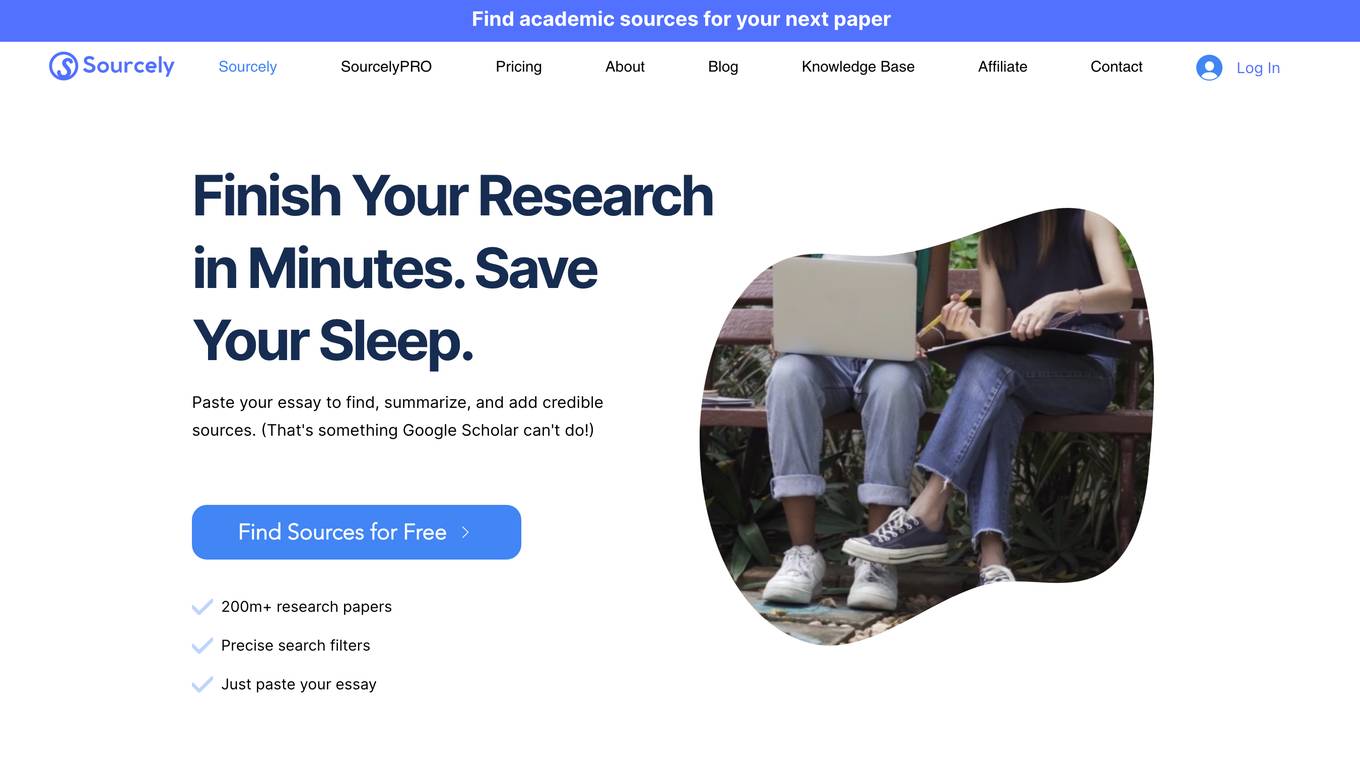
Sourcely
Sourcely is an AI-powered academic search assistant designed to help users find, summarize, and add credible academic sources efficiently. With access to over 200 million research papers and advanced search filters, Sourcely streamlines the research process by finding sources, summarizing them, and exporting citations instantly. It offers features such as advanced citation tools, precise search filters, targeted citations, free PDF downloads, citations library, credible summaries, and export references in various formats. Sourcely is a valuable tool for researchers, students, and professionals looking to enhance the quality of their work and save time in sourcing and referencing.
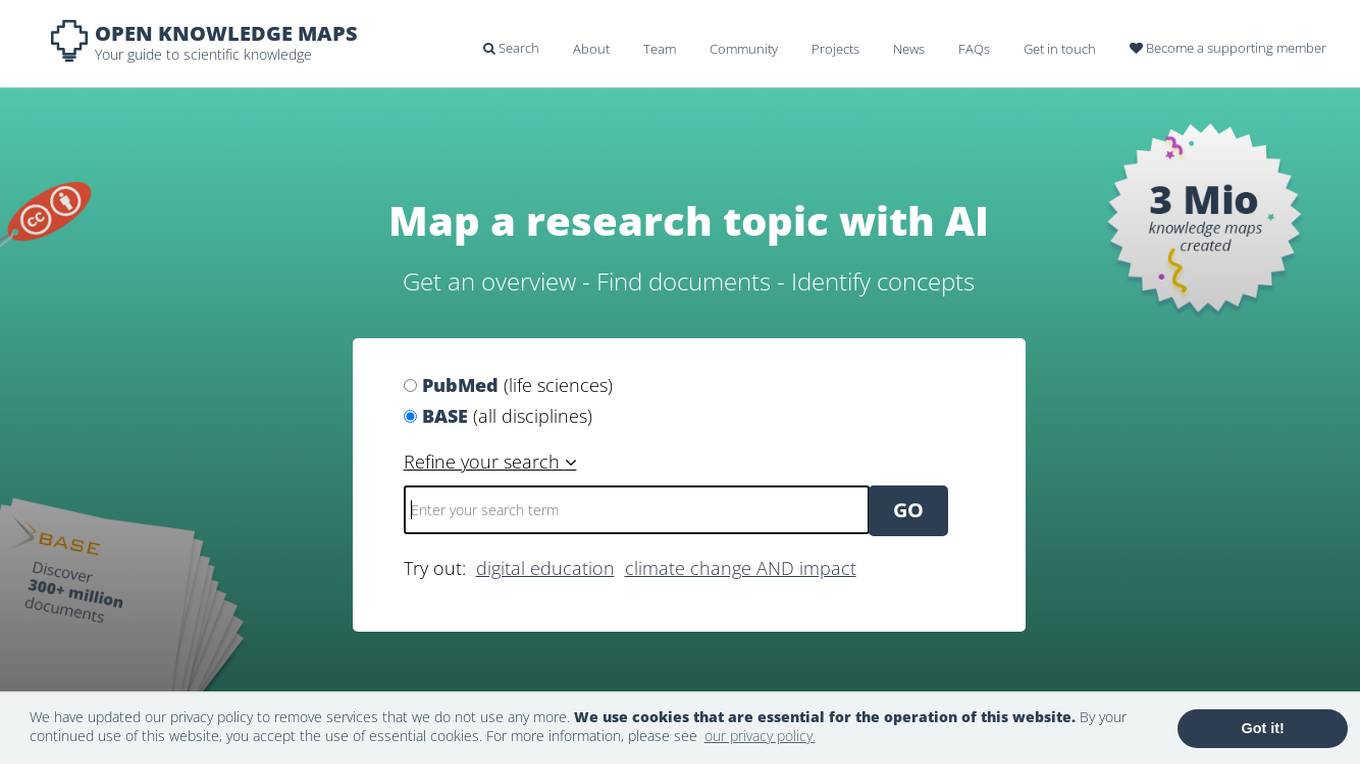
Open Knowledge Maps
Open Knowledge Maps is the world's largest AI-based search engine for scientific knowledge. It aims to revolutionize discovery by increasing the visibility of research findings for science and society. The platform is open and nonprofit, based on the principles of open science, with a mission to create an inclusive, sustainable, and equitable infrastructure for all users. Users can map research topics with AI, find documents, and identify concepts to enhance their literature search experience.
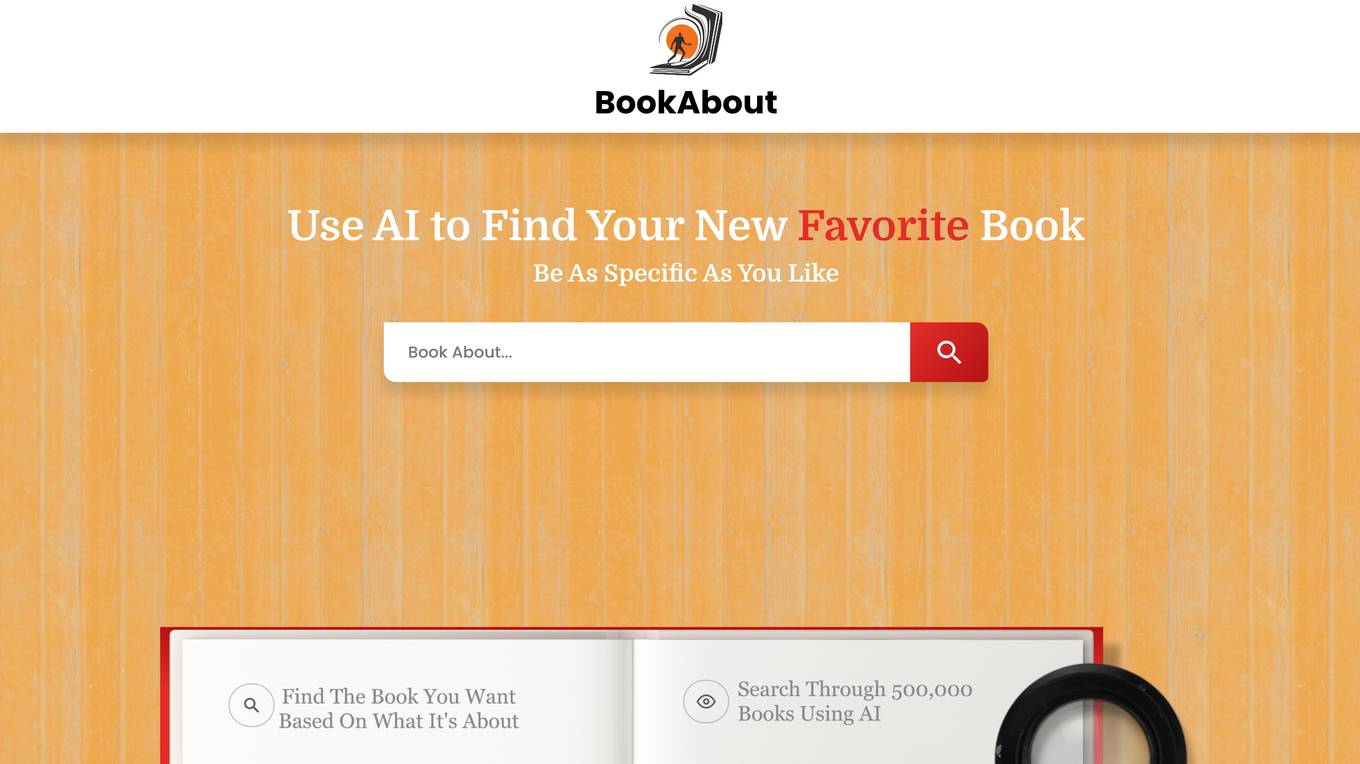
BookAbout
BookAbout is an AI-powered application that helps users discover their next favorite book. By leveraging artificial intelligence technology, BookAbout provides personalized book recommendations based on users' preferences and reading history. Users can be as specific as they like in their search for a new book, ensuring that they find the perfect read every time. As an Amazon Associate, BookAbout may earn a commission from qualifying purchases made through Amazon store links.

Google Patents
Google Patents is a search engine that allows users to search through the full text of patents that have been granted by the United States Patent and Trademark Office (USPTO). The database includes patents from 1790 to the present day, and users can search by keyword, inventor, assignee, or patent number. Google Patents also provides access to images of the original patent documents, as well as links to related patents and articles.
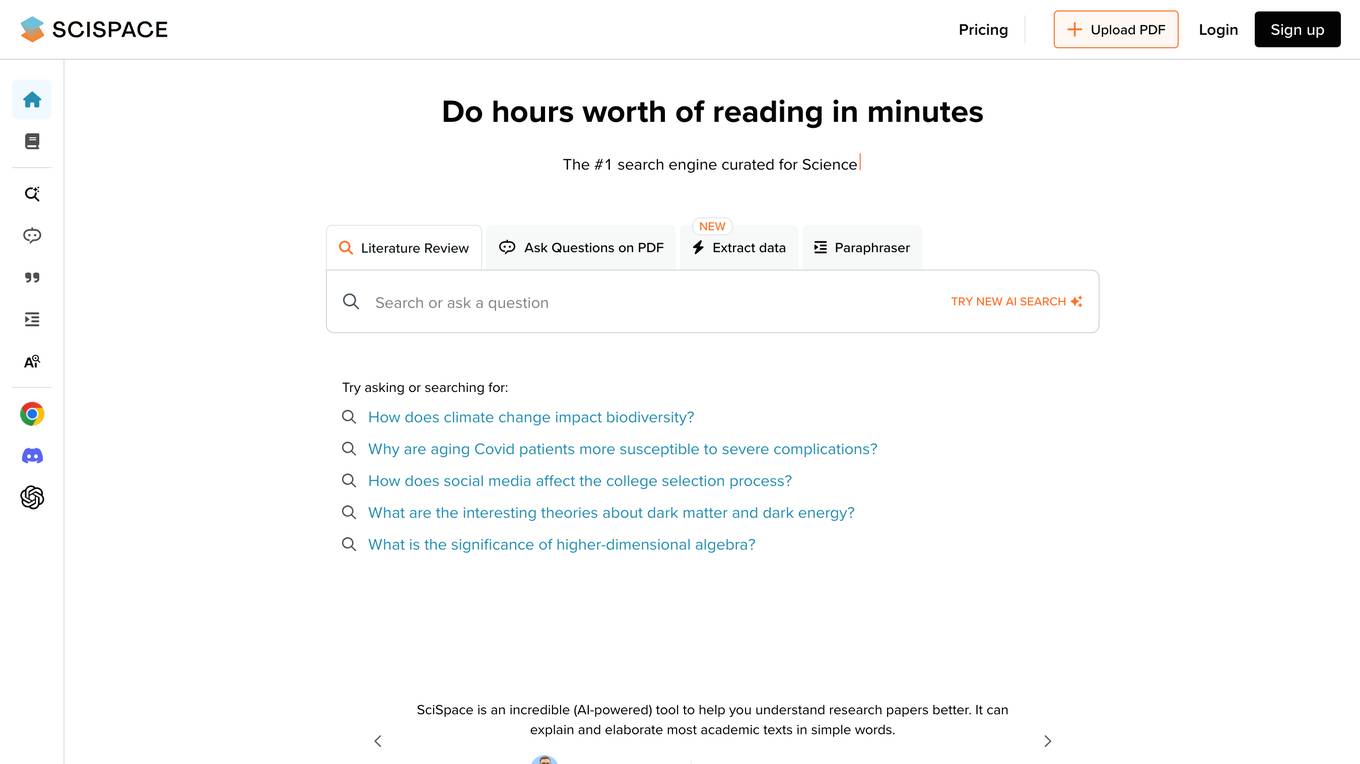
SciSpace
SciSpace is an AI-powered tool that helps researchers understand research papers better. It can explain and elaborate most academic texts in simple words. It is a great tool for students, researchers, and anyone who wants to learn more about a particular topic. SciSpace has a user-friendly interface and is easy to use. Simply upload a research paper or enter a URL, and SciSpace will do the rest. It will highlight key concepts, provide definitions, and generate a summary of the paper. SciSpace can also be used to generate citations and find related papers.

QOVES
QOVES is a website that provides tools and advice to help people improve their looks. The website offers a variety of services, including facial analysis, hairline design, style advice, and Photoshop retouching. QOVES also has a blog with articles on a variety of topics related to beauty and aesthetics.
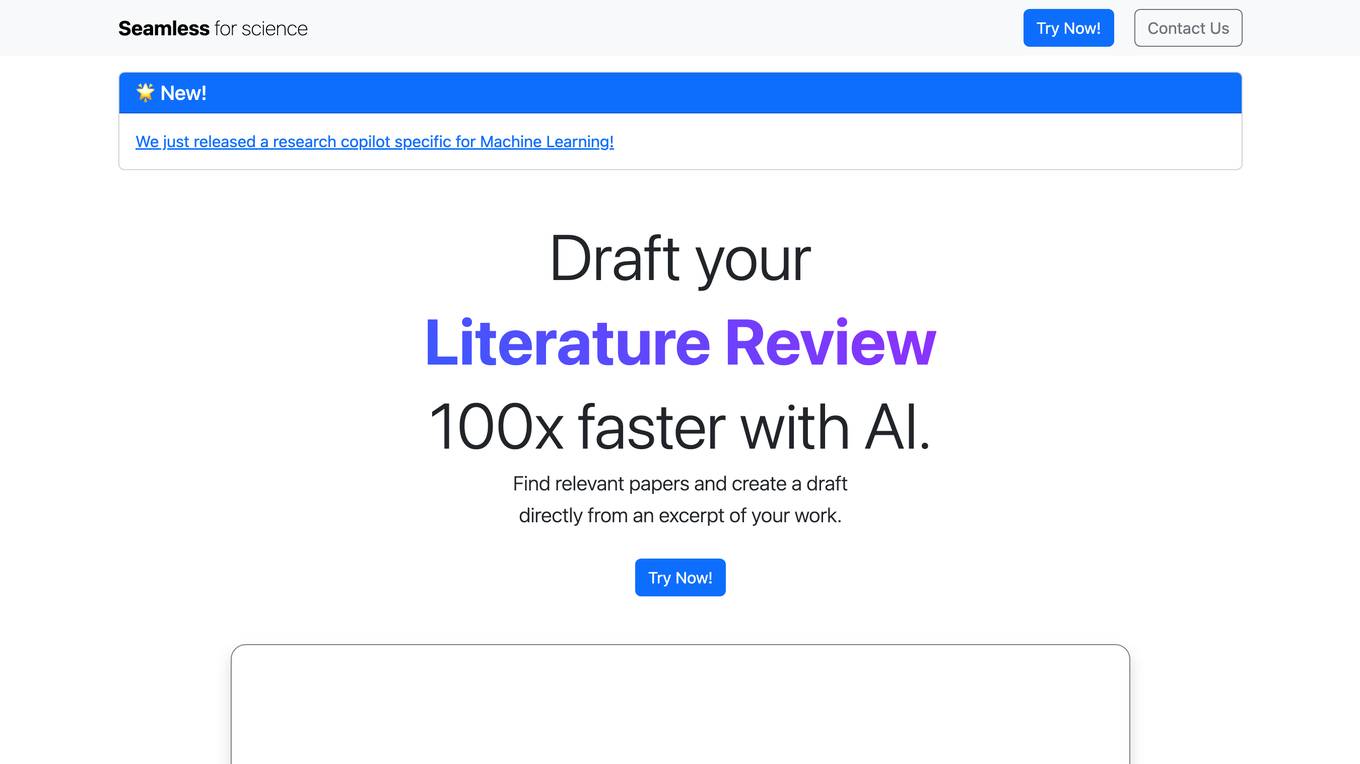
Seamless
Seamless is an AI-powered literature review tool and scholarship search assistant designed to revolutionize the academic research process. It utilizes advanced AI technology to accelerate the creation of literature reviews, find relevant papers, generate drafts, and assist in crafting compelling scholarship essays. With Seamless, users can access a vast database of scientific papers, receive real-time feedback on their writing, and enhance their language skills. The tool aims to streamline the research journey for students and researchers by providing comprehensive analysis, citations, and access to new sources of funding.
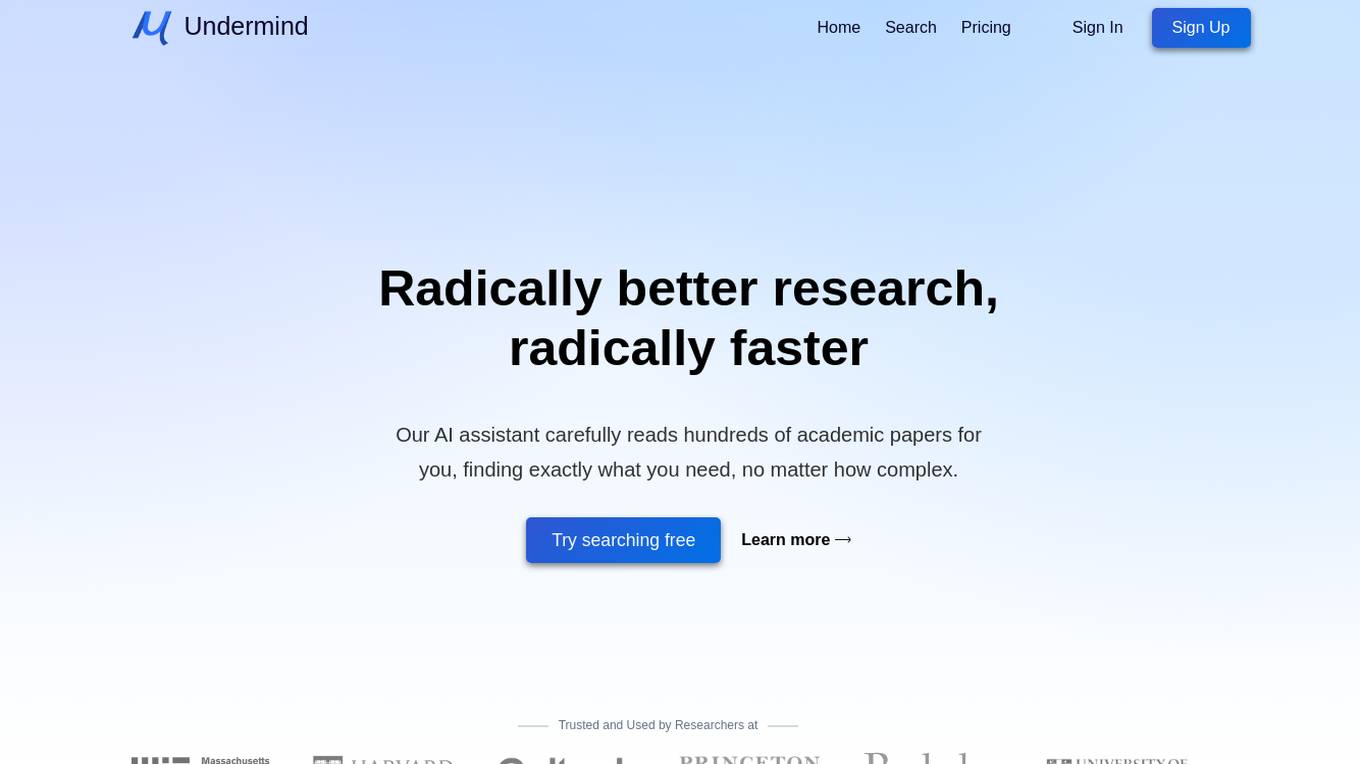
Undermind
Undermind is an AI-powered scientific research assistant that revolutionizes the way researchers access and analyze academic papers. By utilizing intelligent language models, Undermind reads and synthesizes information from hundreds of papers to provide accurate and comprehensive results. Researchers can describe their queries in natural language, and Undermind assists in finding relevant papers, brainstorming questions, and discovering crucial insights. Trusted by researchers across various fields, Undermind offers a unique approach to literature search, surpassing traditional search engines in accuracy and efficiency.

OpenRead
OpenRead is an AI-powered research tool that helps users discover, understand, and organize scientific literature. It offers a variety of features to make research more efficient and effective, including semantic search, AI summarization, and note-taking tools. OpenRead is designed to help researchers of all levels, from students to experienced professionals, save time and improve their research outcomes.
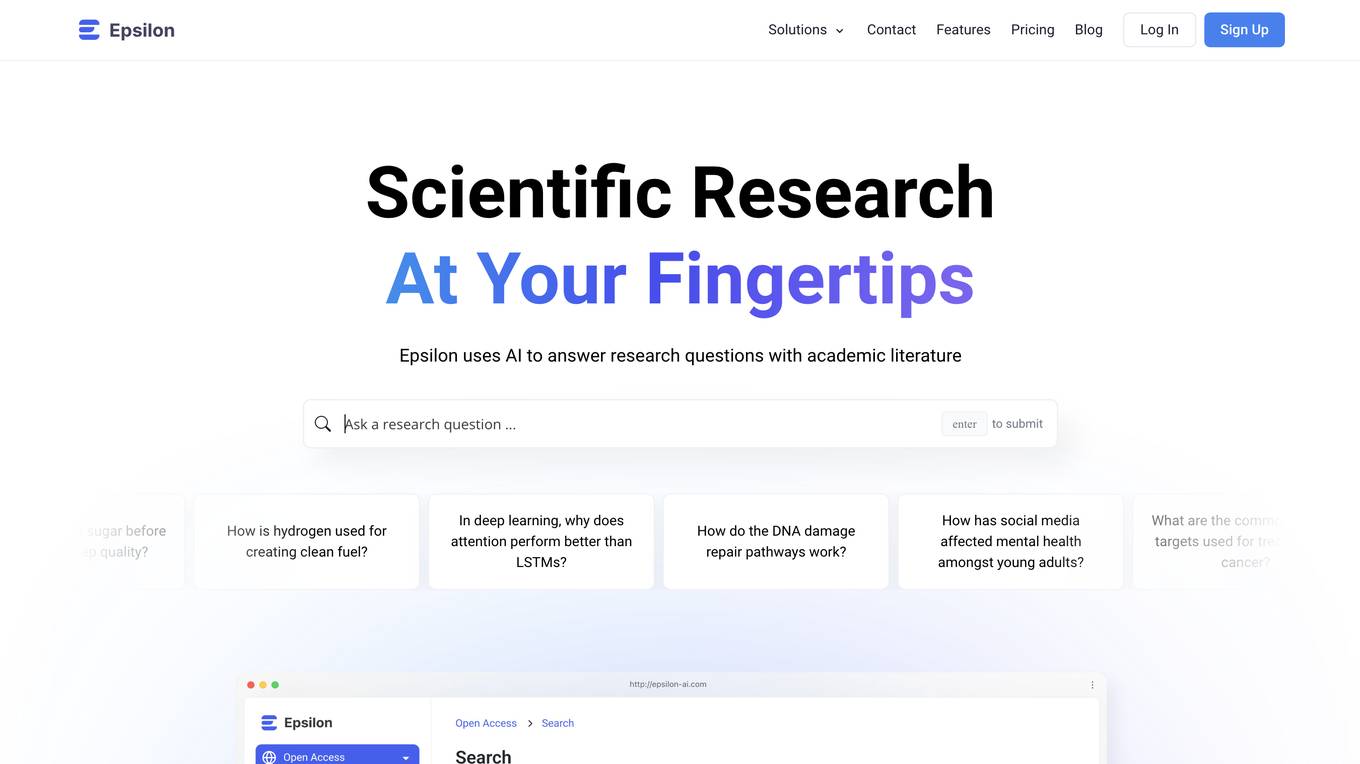
Epsilon
Epsilon is an AI search engine designed for scientific research solutions. It helps researchers find evidence, citations, and relevant information from over 200 million academic papers. Epsilon can summarize passages, group search results, extract key information from multiple papers, and provide comprehensive summaries. Trusted by over 30,000 researchers worldwide, Epsilon is a reliable tool for conducting literature reviews, drafting proposals, and executing research projects.

Dr. Amit Ray
Dr. Amit Ray is famous for his teachings on peace, compassion, meditation, non- violence, 114 chakras, compassionate AI, mindfulness, leadership and creativity. He is also famous for his contribution in the field of quantum computing and artificial intelligence. He has spent several years in high Himalaya in deep silent meditation. He is one of the rare meditation master, who has fully experienced the higher consciousness and fully conversant with the ancient meditation literature as well as modern high end researches. He often remains engrossed in deep meditation in the dense forests, caves, and snow-covered peaks of the Himalayas. At the same time he always keeps a watchful compassionate gaze for the well-being of the humanity. His compassion and meditation teachings transcends the limitations of worldly distinctions such as religion, country, culture, caste, class, color, history, and geography.
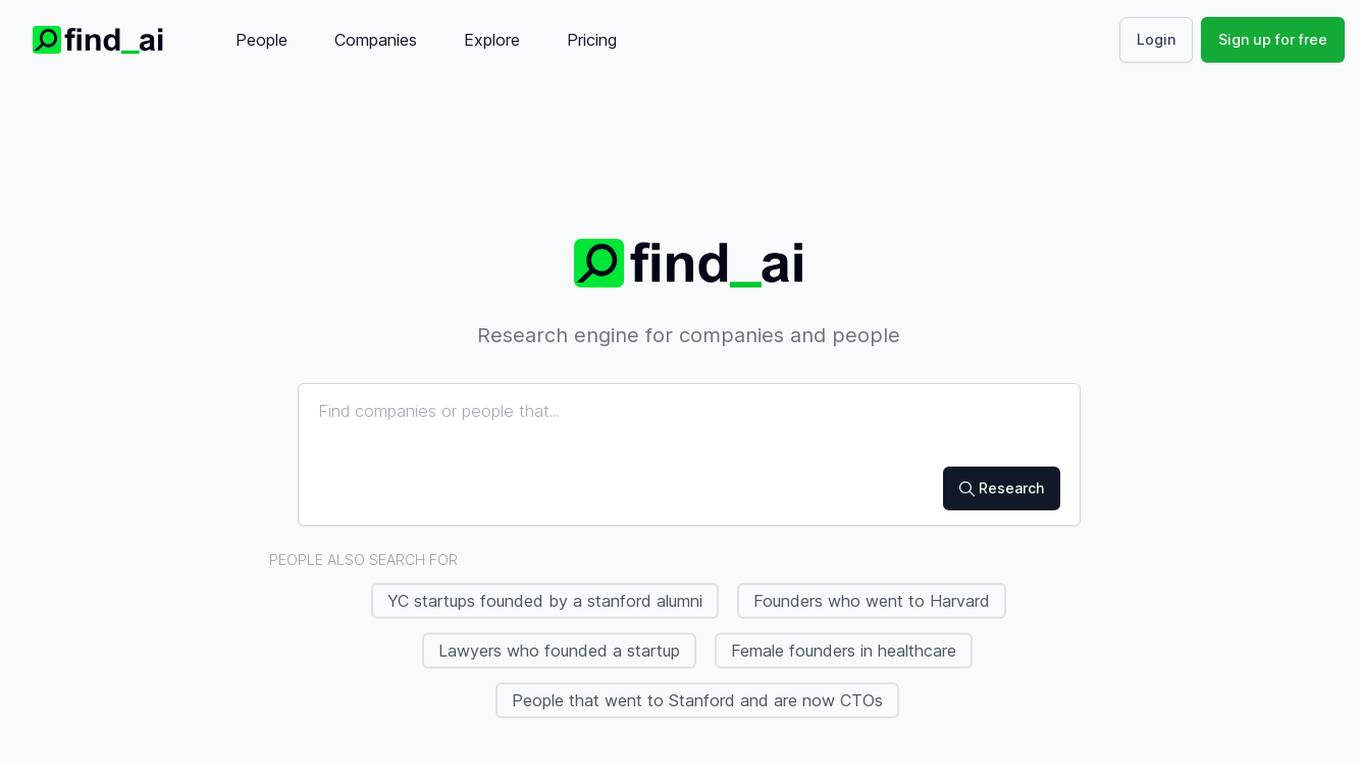
Find AI
Find AI is an AI-powered search engine that provides users with advanced search capabilities to unlock contact details and gain more accurate insights. The platform caters to individuals and companies looking to research people, companies, startups, founders, and more. Users can access email addresses and premium search features to explore a wide range of data related to various industries and sectors. Find AI offers a user-friendly interface and efficient search algorithms to deliver relevant results in a timely manner.
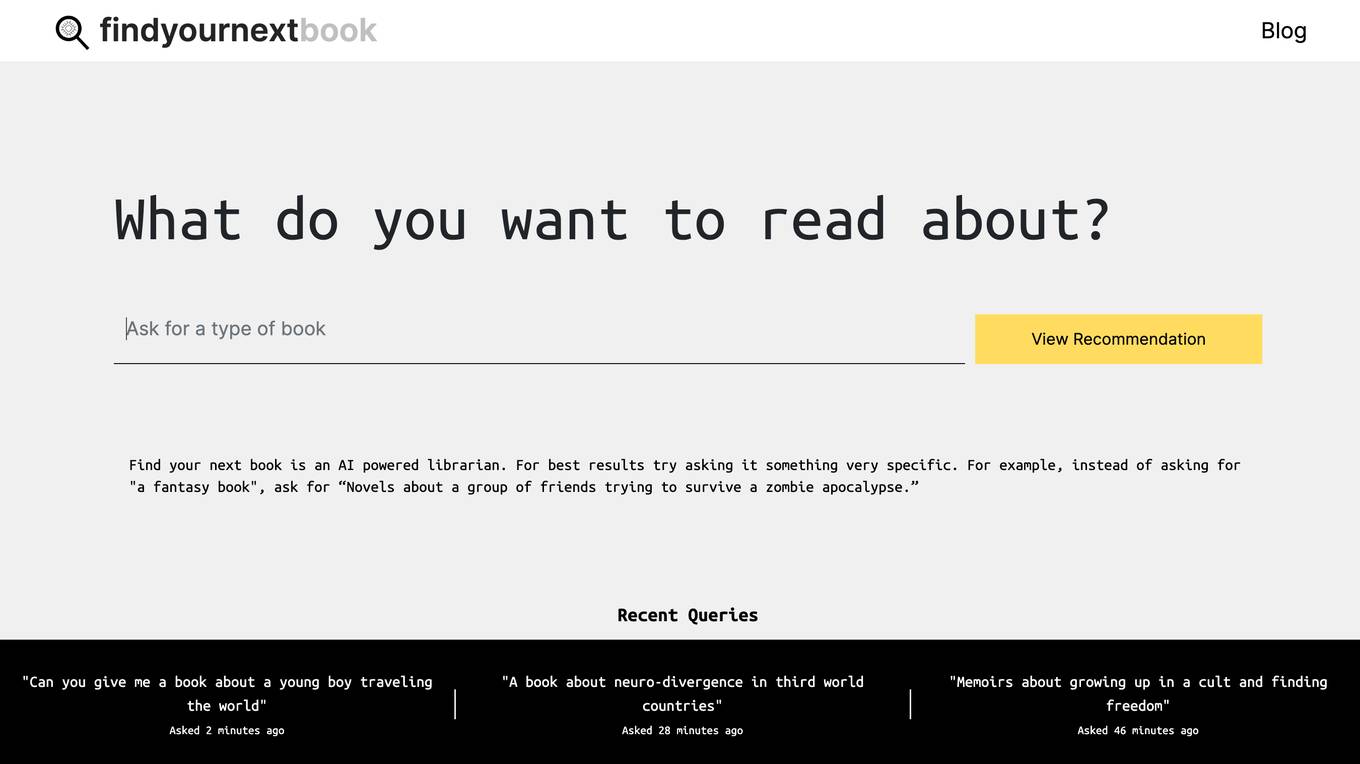
Find your next book
Find your next book is an AI-powered librarian that provides personalized book recommendations based on your preferences. It uses advanced algorithms to analyze your reading history, interests, and other factors to suggest books that you're likely to enjoy. The platform offers a wide range of genres and authors to choose from, making it easy to find your next favorite read.
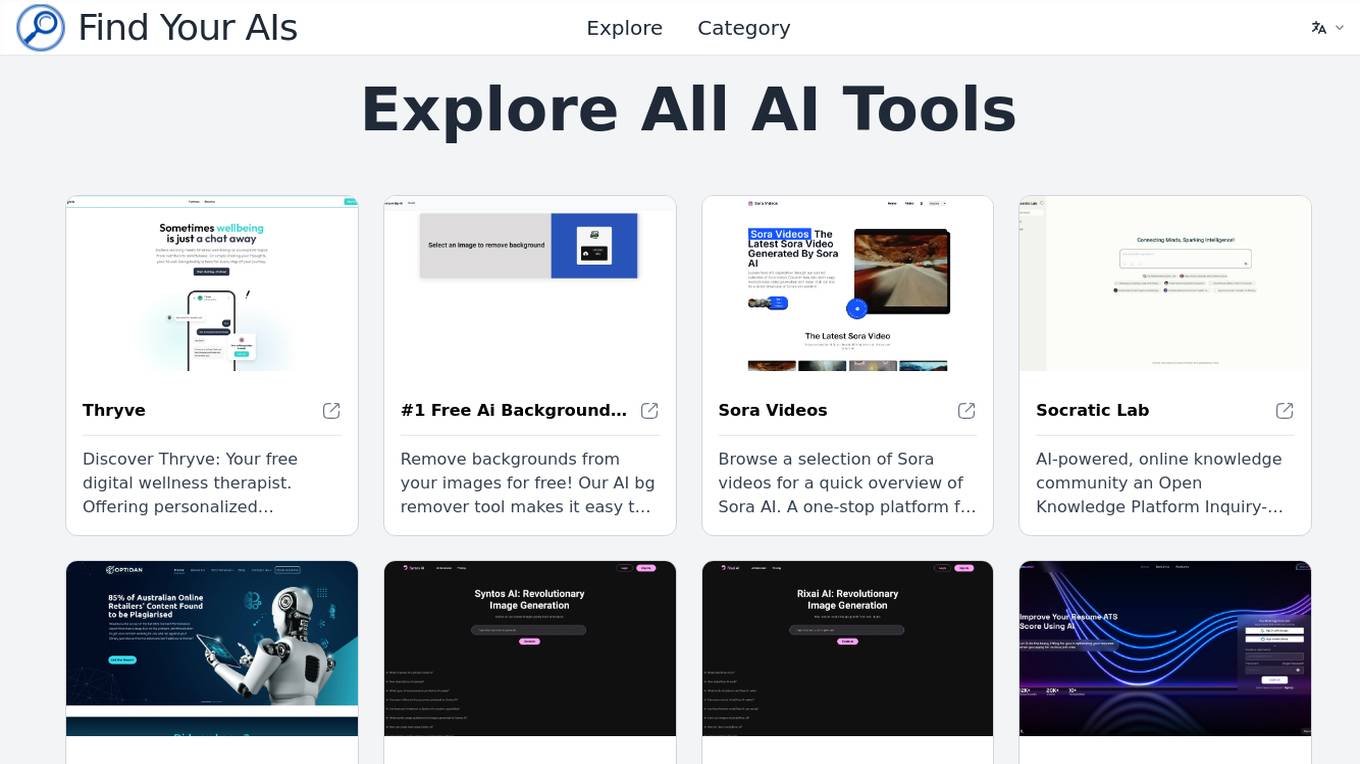
Find Your AIs
Find Your AIs is an AI directory website that showcases a wide range of AI tools and applications. It offers a platform for users to explore and discover various AI-powered solutions across different categories such as digital wellness, marketing, text-to-image generation, resume customization, and more. The website aims to connect users with innovative AI technologies to enhance their daily lives and work efficiency.
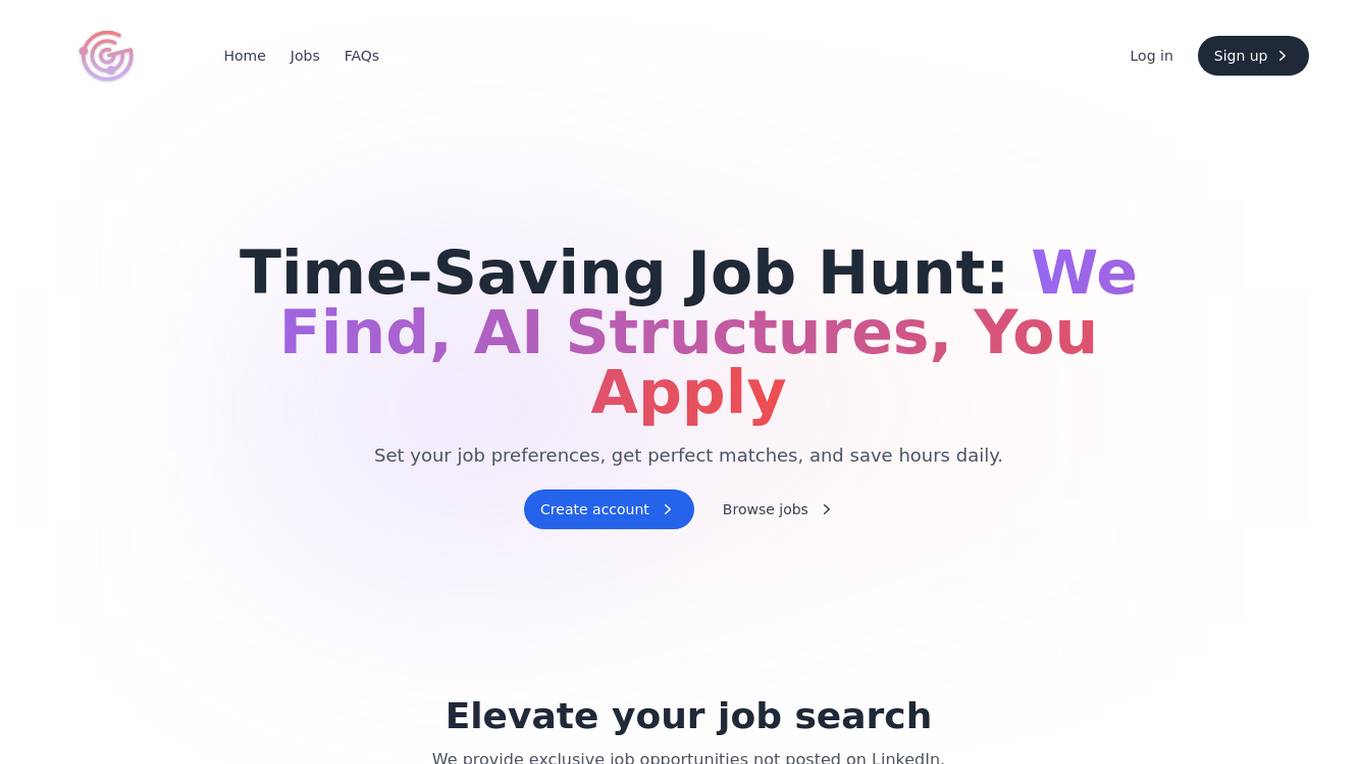
Find My Remote
Find My Remote is an AI-powered job search platform that streamlines the job hunting process by leveraging artificial intelligence to find and structure job postings from various ATS platforms. Users can set their job preferences, receive personalized job matches, and save time by applying to curated job listings. The platform offers exclusive job opportunities not typically found on popular job search websites like LinkedIn. With features such as job discovery, application tracking, and faster application process, Find My Remote aims to revolutionize the way job seekers find and apply for jobs.

Find New AI
Find New AI is a comprehensive platform offering a variety of AI tools and efficiency solutions for different purposes such as SEO, content creation, marketing, link building, image manipulation, and more. The website provides reviews, tutorials, and guides on utilizing AI software effectively to enhance productivity and creativity in various domains.

Find My Size
Find My Size is a web application that provides personalized size recommendations for exclusive deals at hundreds of top retailers. Users can input their measurements and preferences to receive tailored suggestions for clothing items that will fit them perfectly. The platform aims to enhance the online shopping experience by helping customers find the right size and style without the need for multiple returns. Find My Size collaborates with various retailers to offer a wide range of products across different categories, including active & sportswear, young contemporary, business & workwear, lingerie & sleepwear, outerwear, maternity wear, plus size apparel, and swimwear.
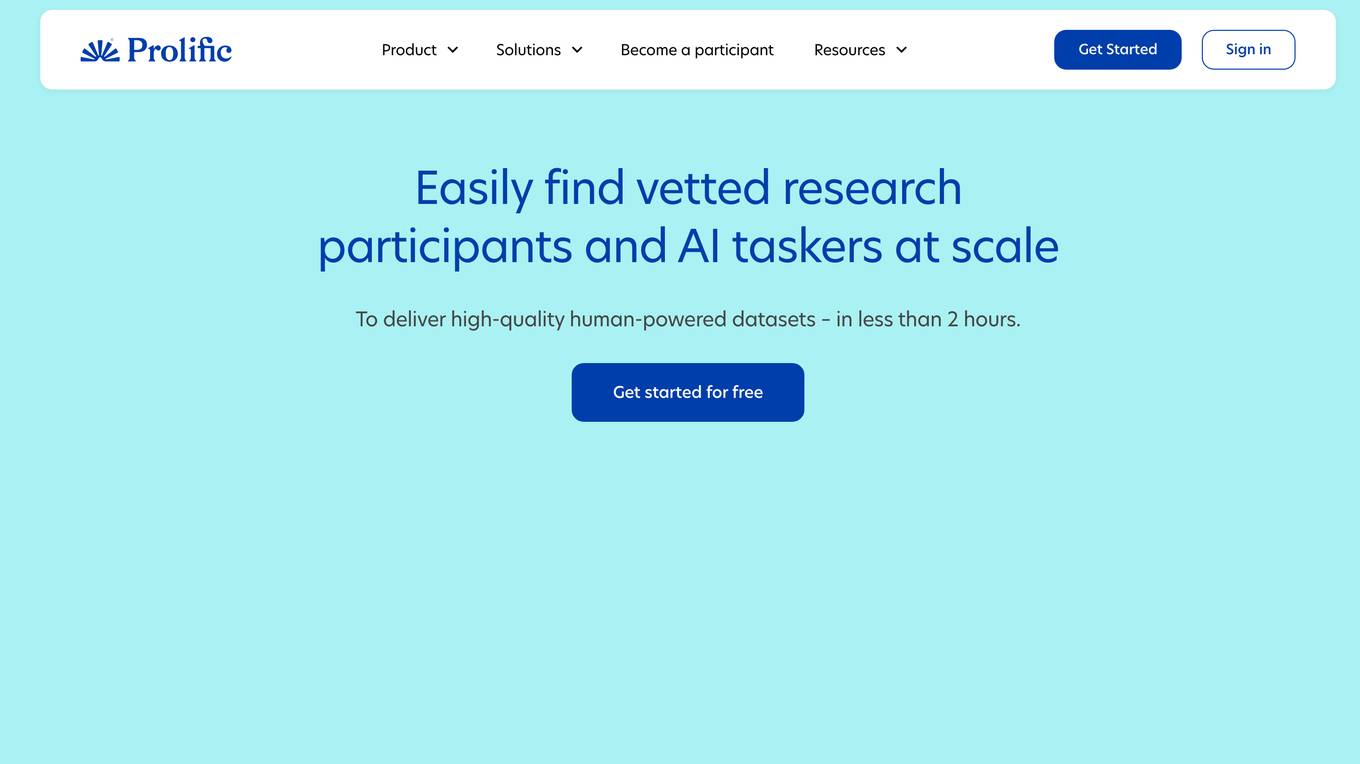
Prolific
Prolific is a platform that allows users to quickly find research participants they can trust. It offers a diverse participant pool, including domain experts and API integration. Prolific ensures high-quality human-powered datasets in less than 2 hours, trusted by over 3000 organizations. The platform is designed for ease of use, with self-serve options and scalability. It provides rich, accurate, and comprehensive responses from engaged participants, verified through manual and algorithmic quality checks.
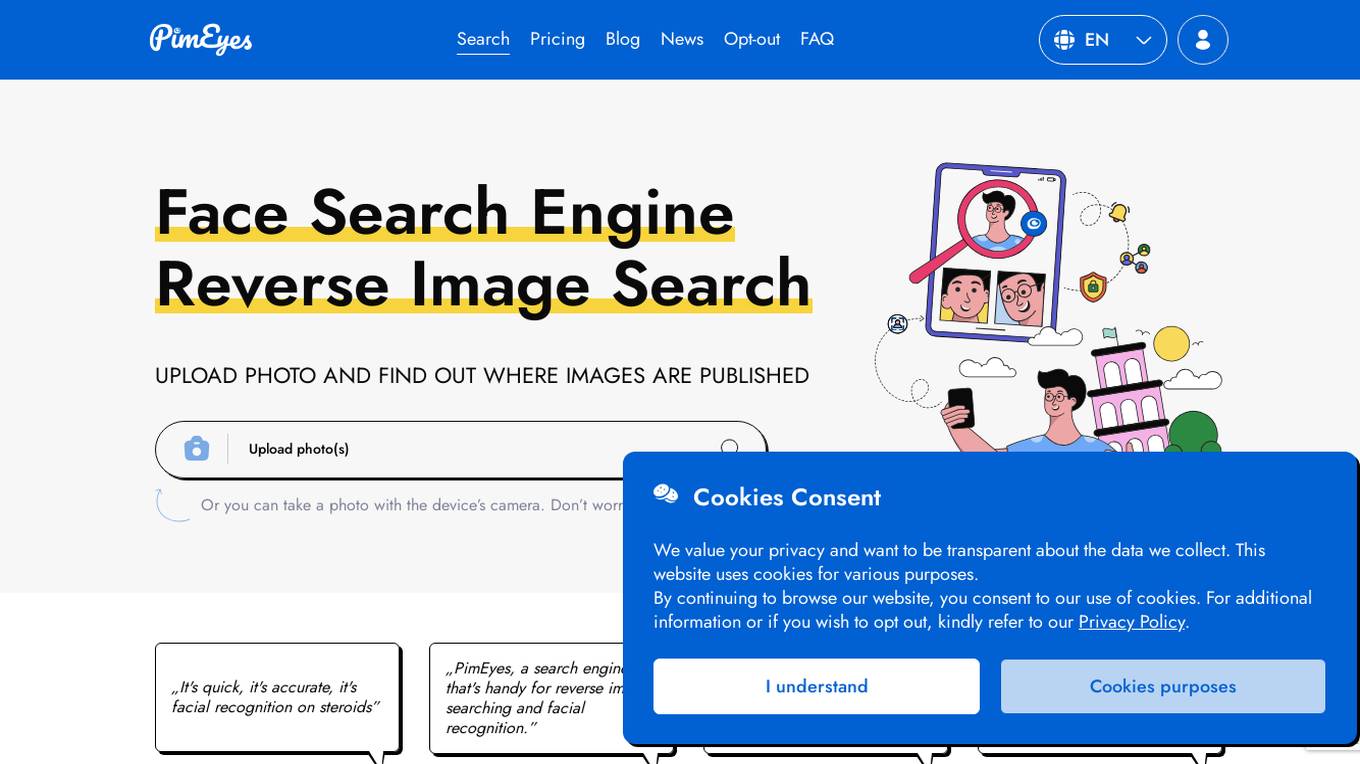
PimEyes
PimEyes is an online face search engine that uses face recognition technology to find pictures containing given faces. It is a great tool to audit copyright infringement, protect your privacy, and find people.
0 - Open Source AI Tools
20 - OpenAI Gpts
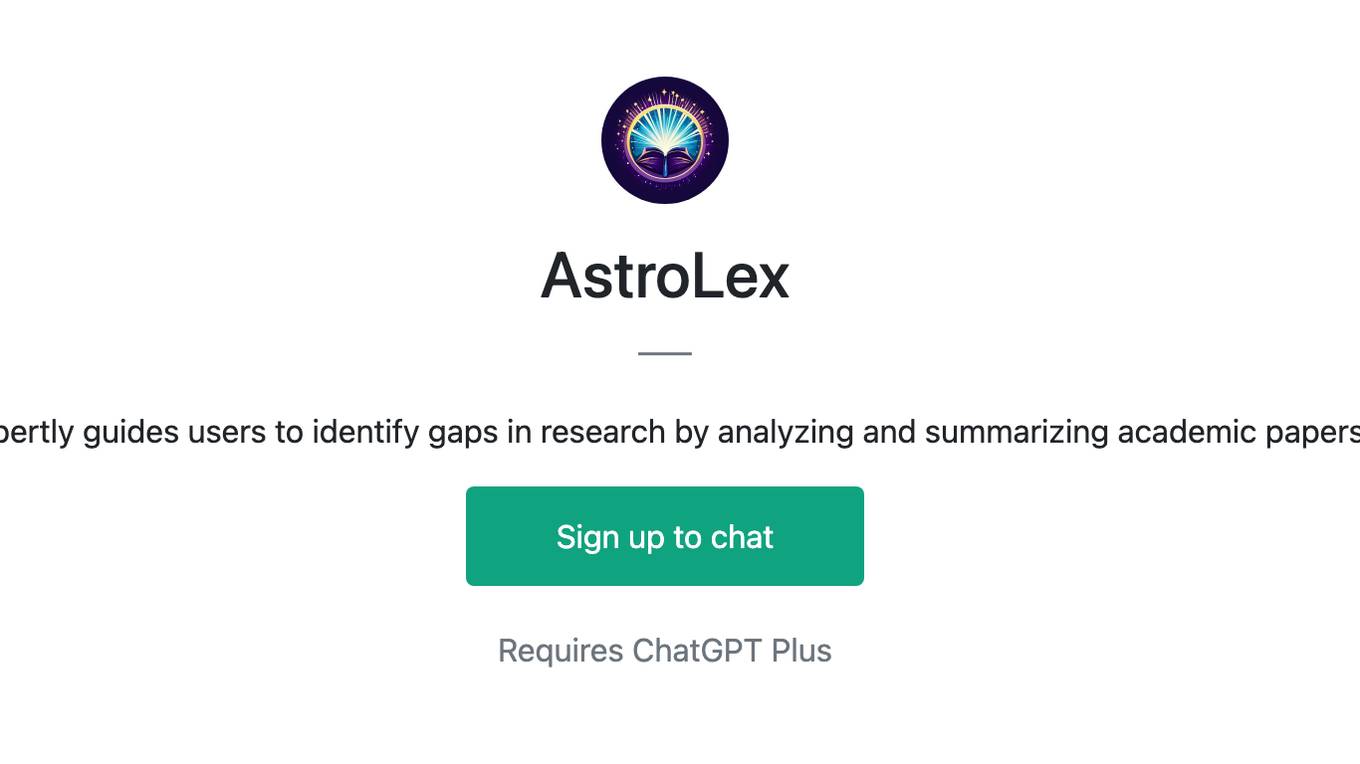
AstroLex
Expertly guides users to identify gaps in research by analyzing and summarizing academic papers.
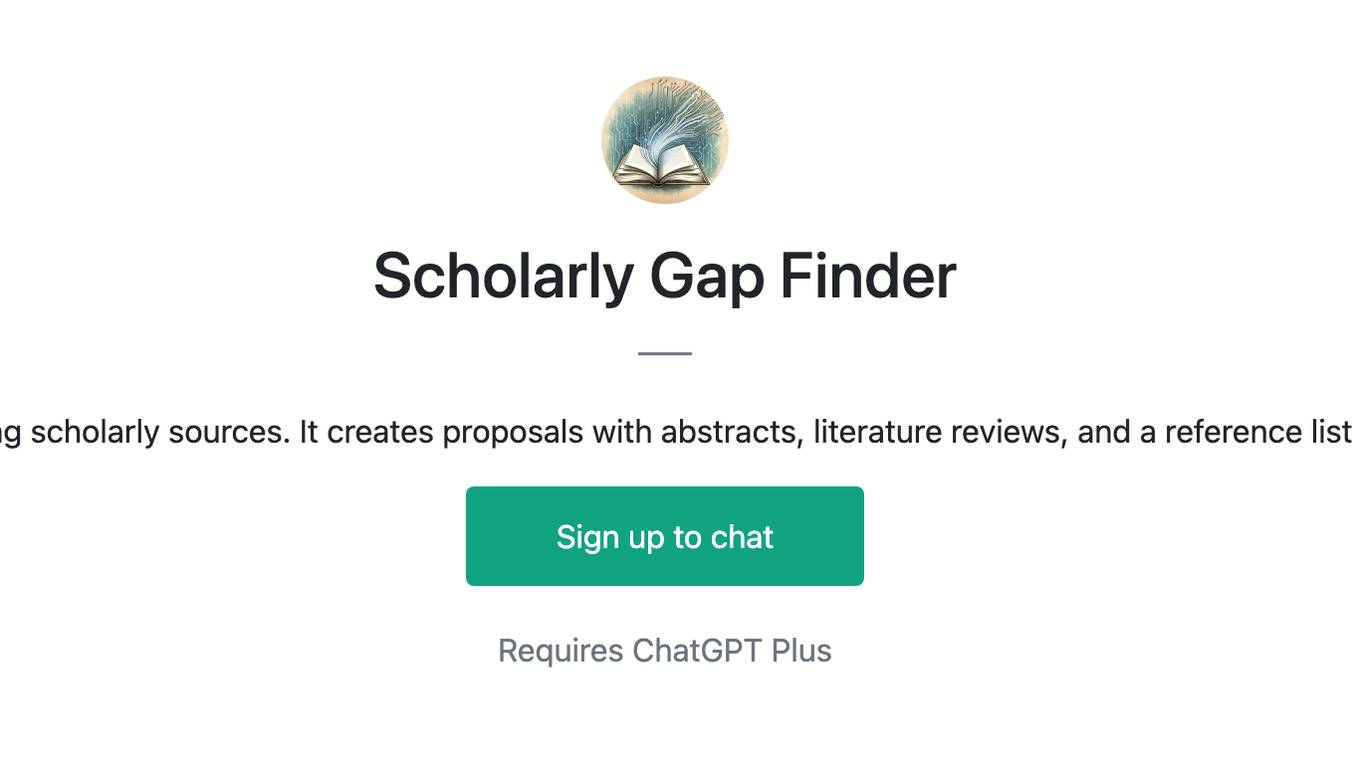
Scholarly Gap Finder
SGF identifies research gaps using scholarly sources. It creates proposals with abstracts, literature reviews, and a reference list tailored for academic research.
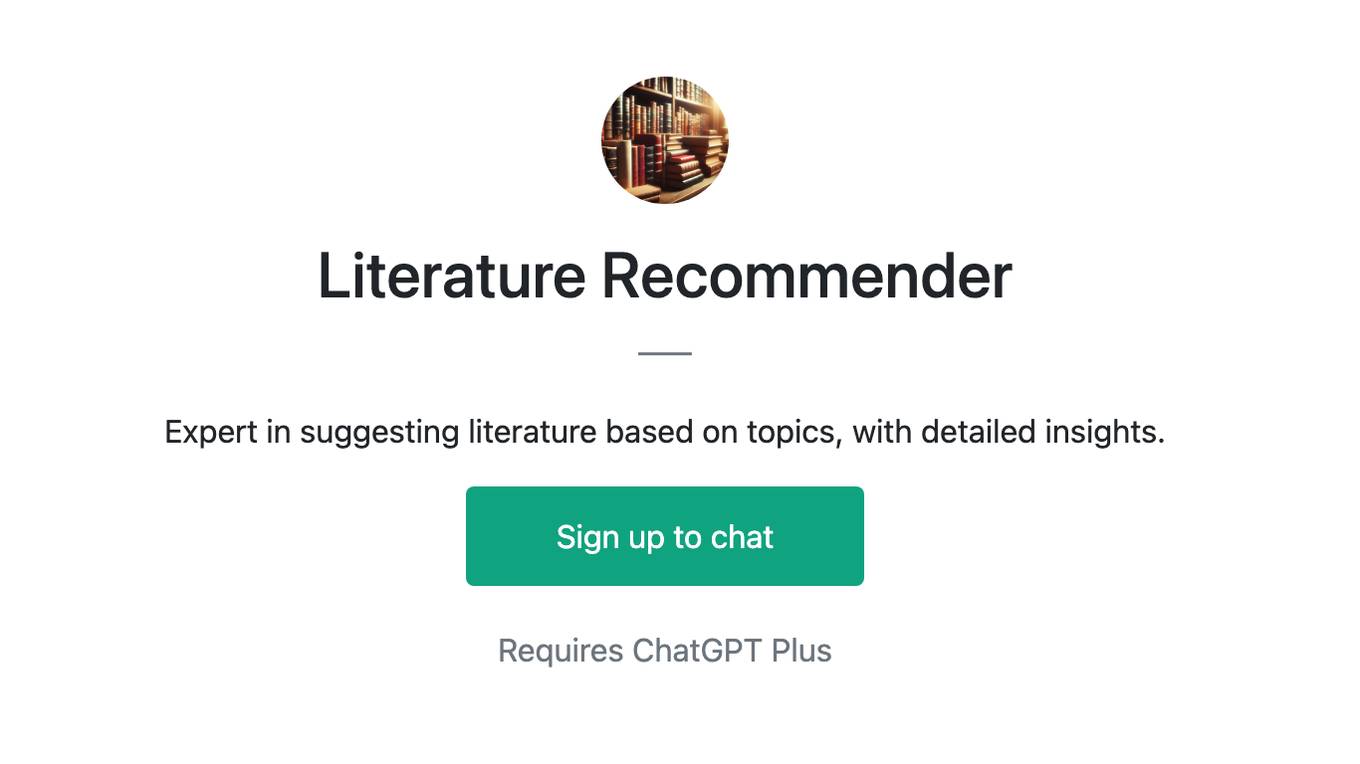
Literature Recommender
Expert in suggesting literature based on topics, with detailed insights.
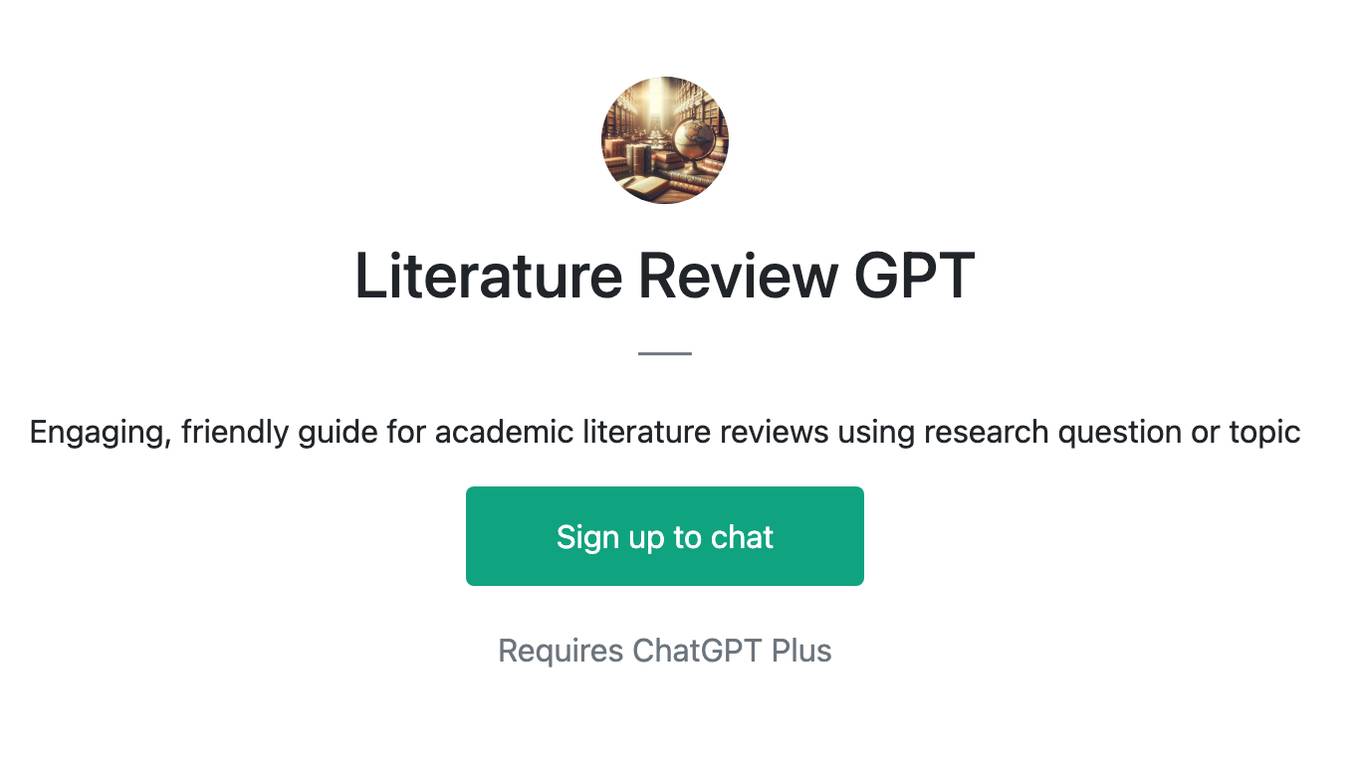
Literature Review GPT
Engaging, friendly guide for academic literature reviews using research question or topic
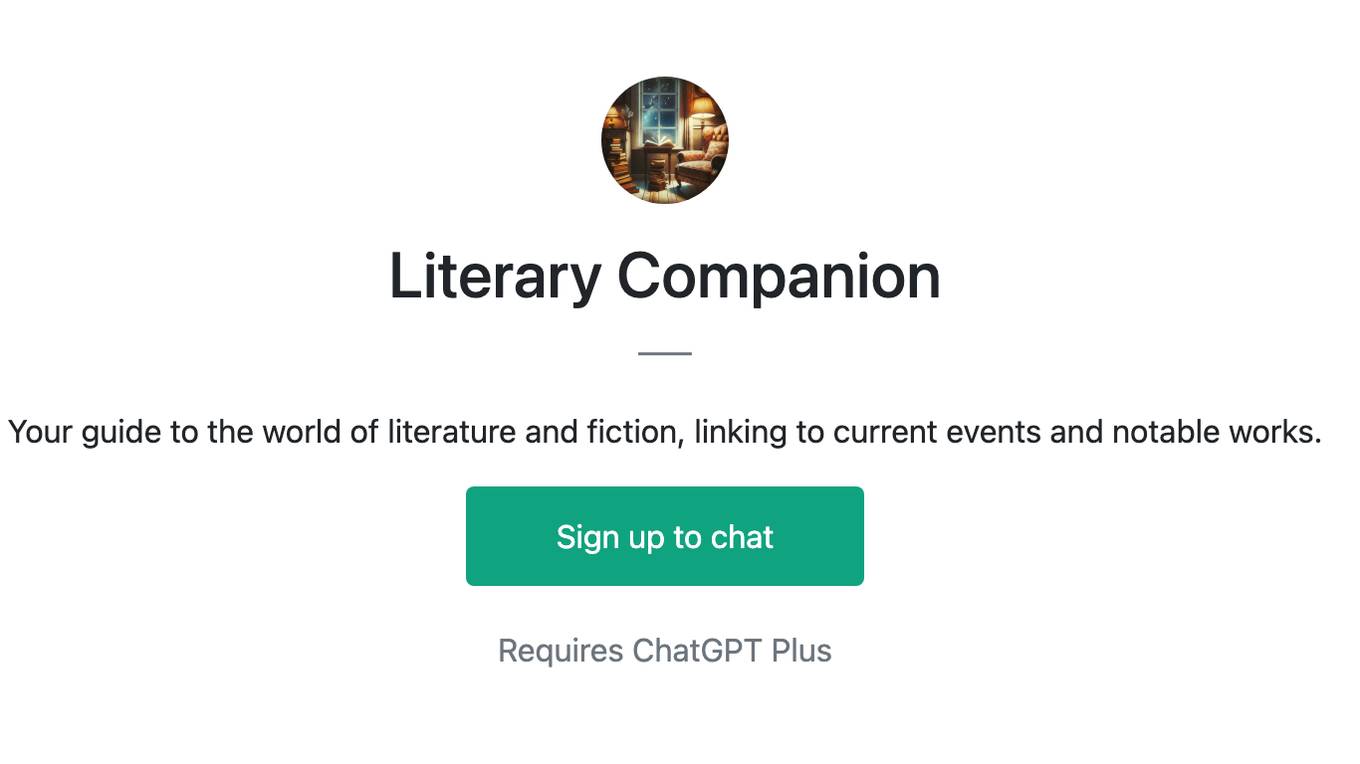
Literary Companion
Your guide to the world of literature and fiction, linking to current events and notable works.
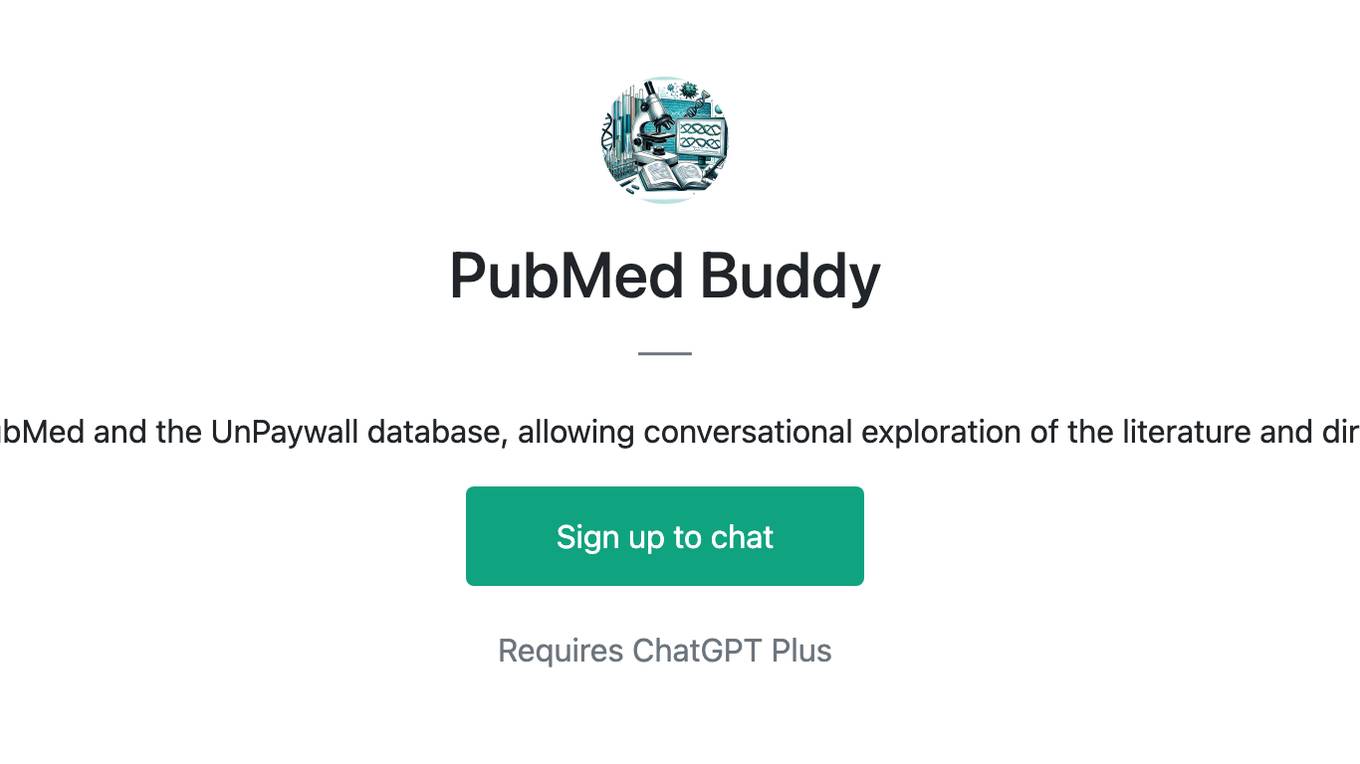
PubMed Buddy
This GPT has access to both PubMed and the UnPaywall database, allowing conversational exploration of the literature and direct access to full-text articles
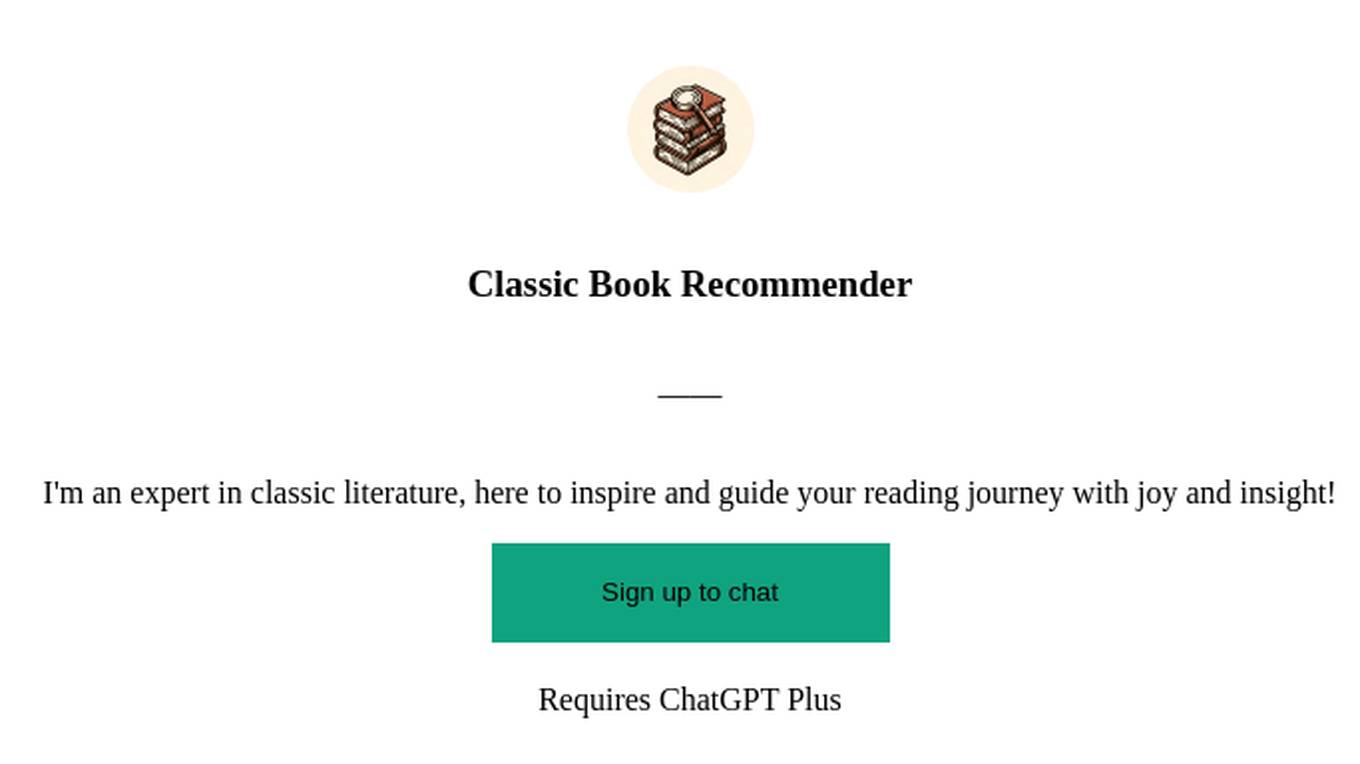
Classic Book Recommender
I'm an expert in classic literature, here to inspire and guide your reading journey with joy and insight!

HR Bookworm
Per aiutarti a navigare nel mondo delle risorse umane e dello sviluppo professionale attraverso la letteratura.

